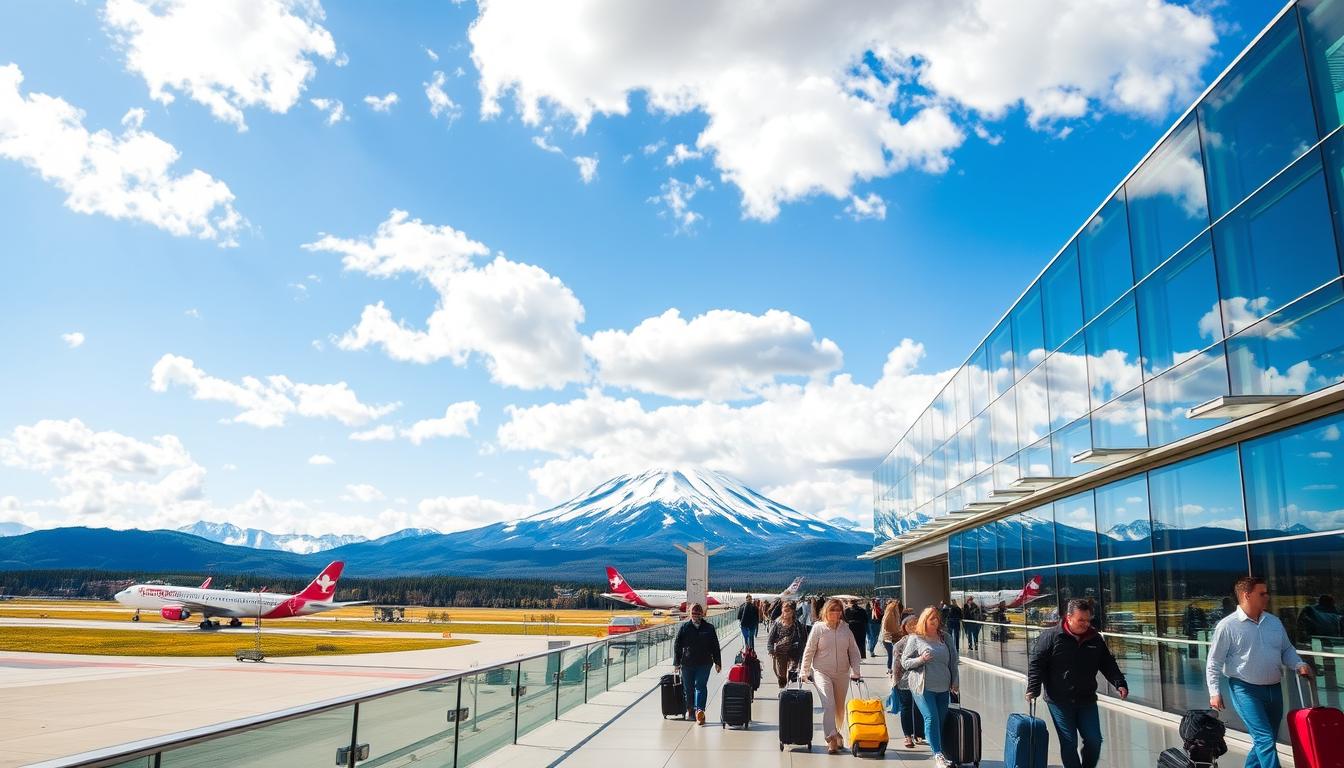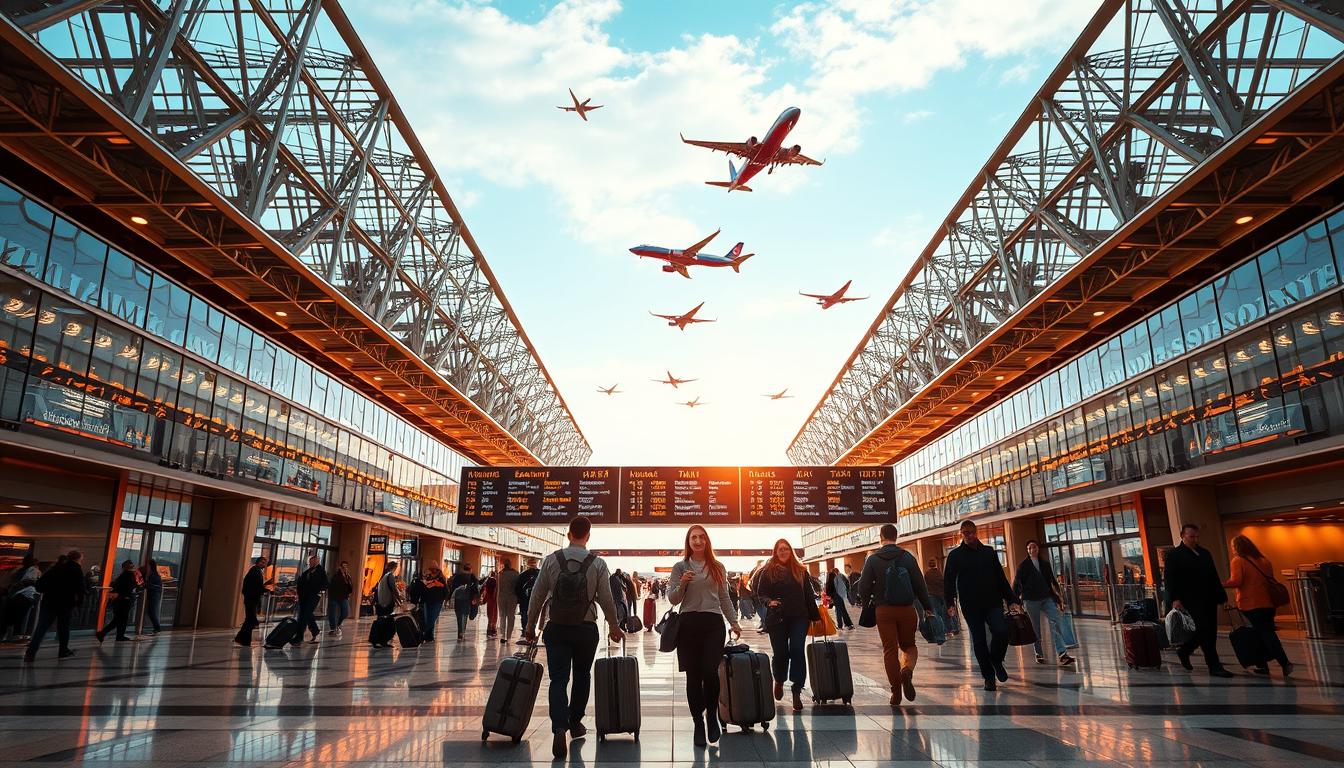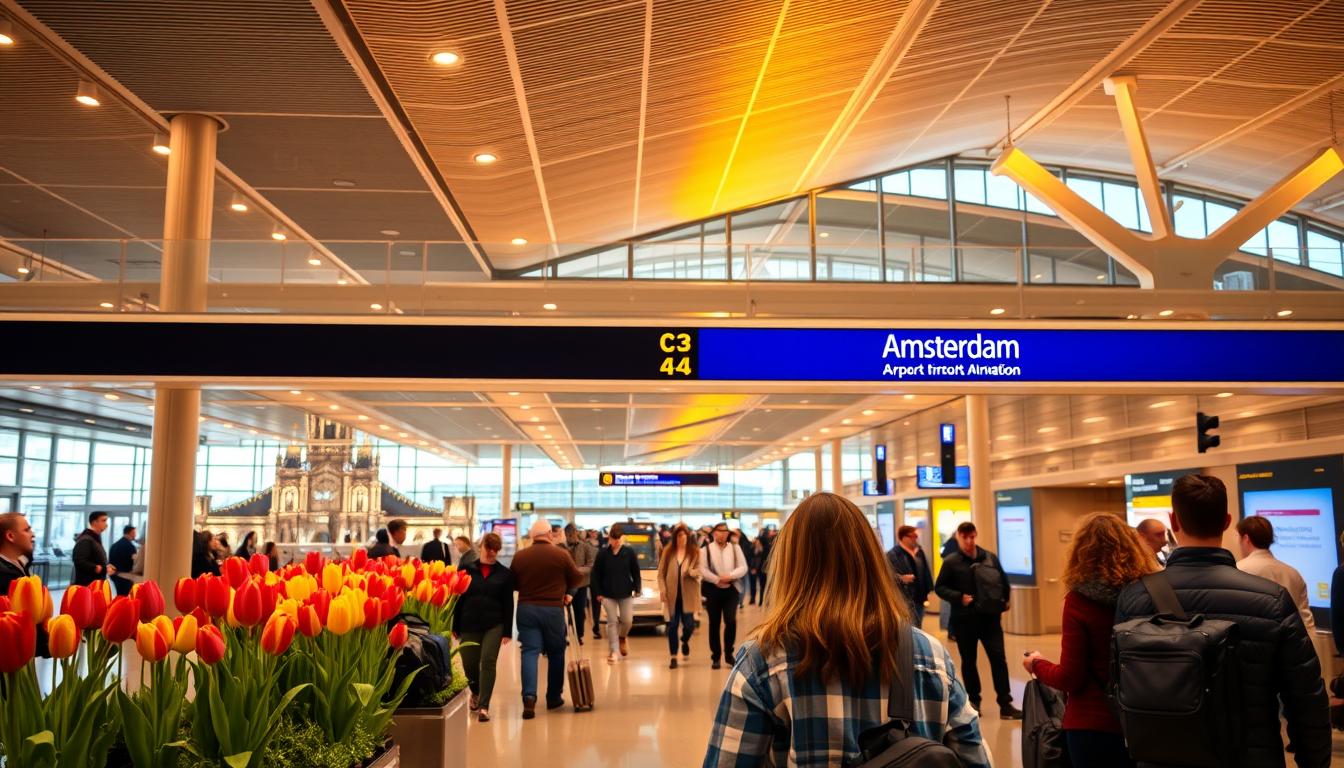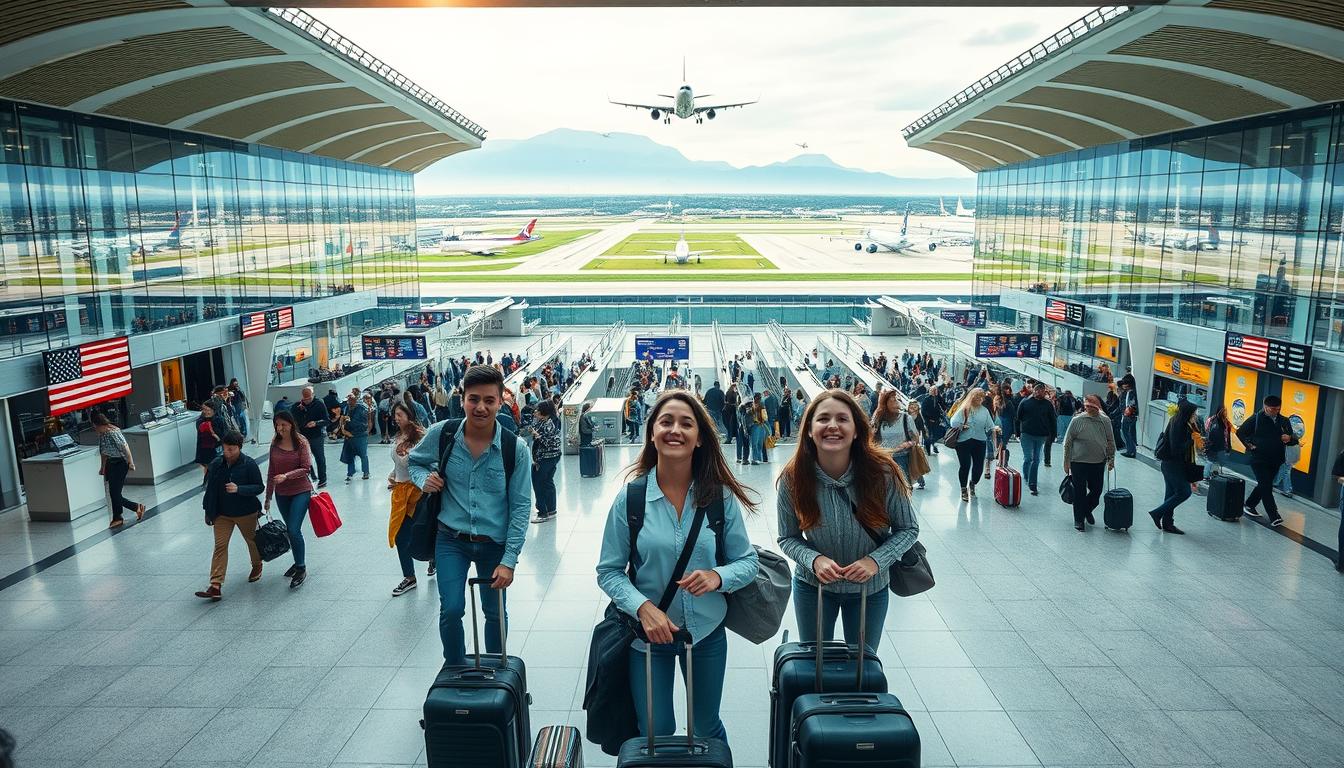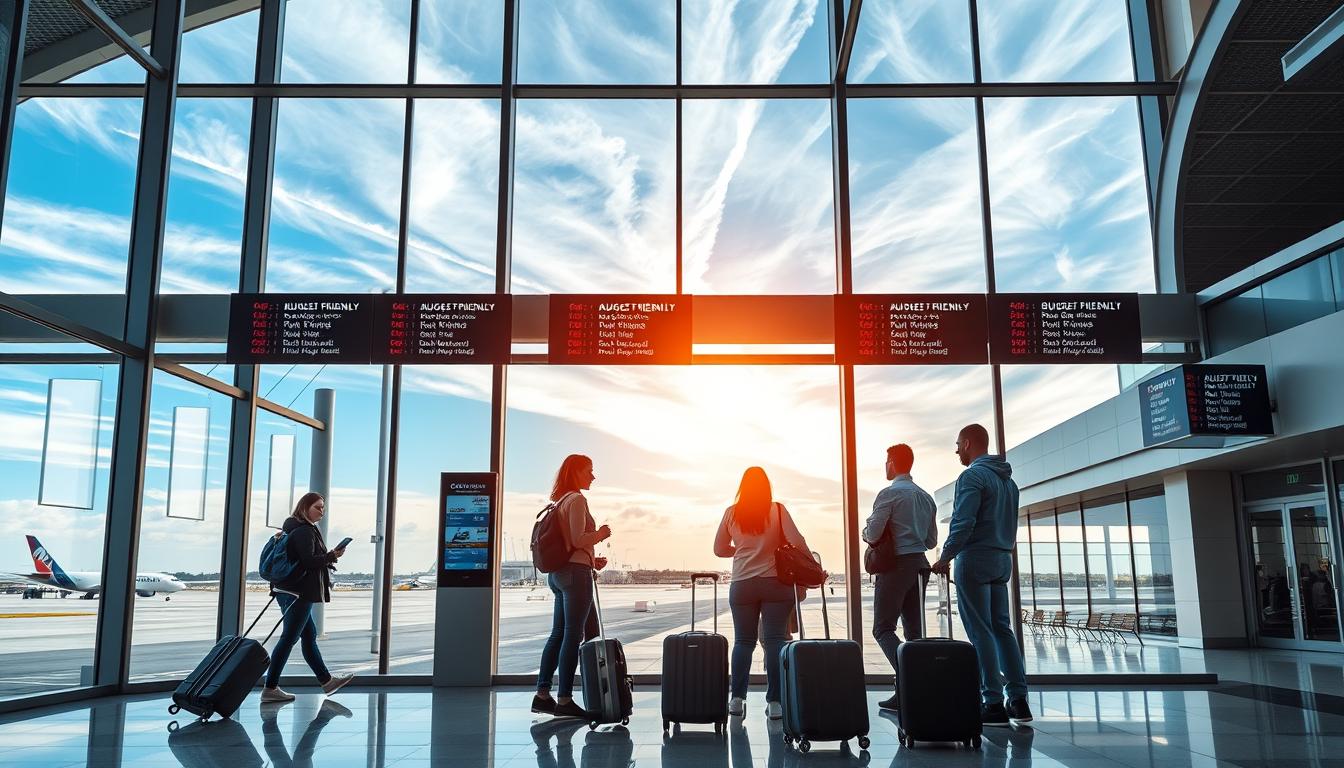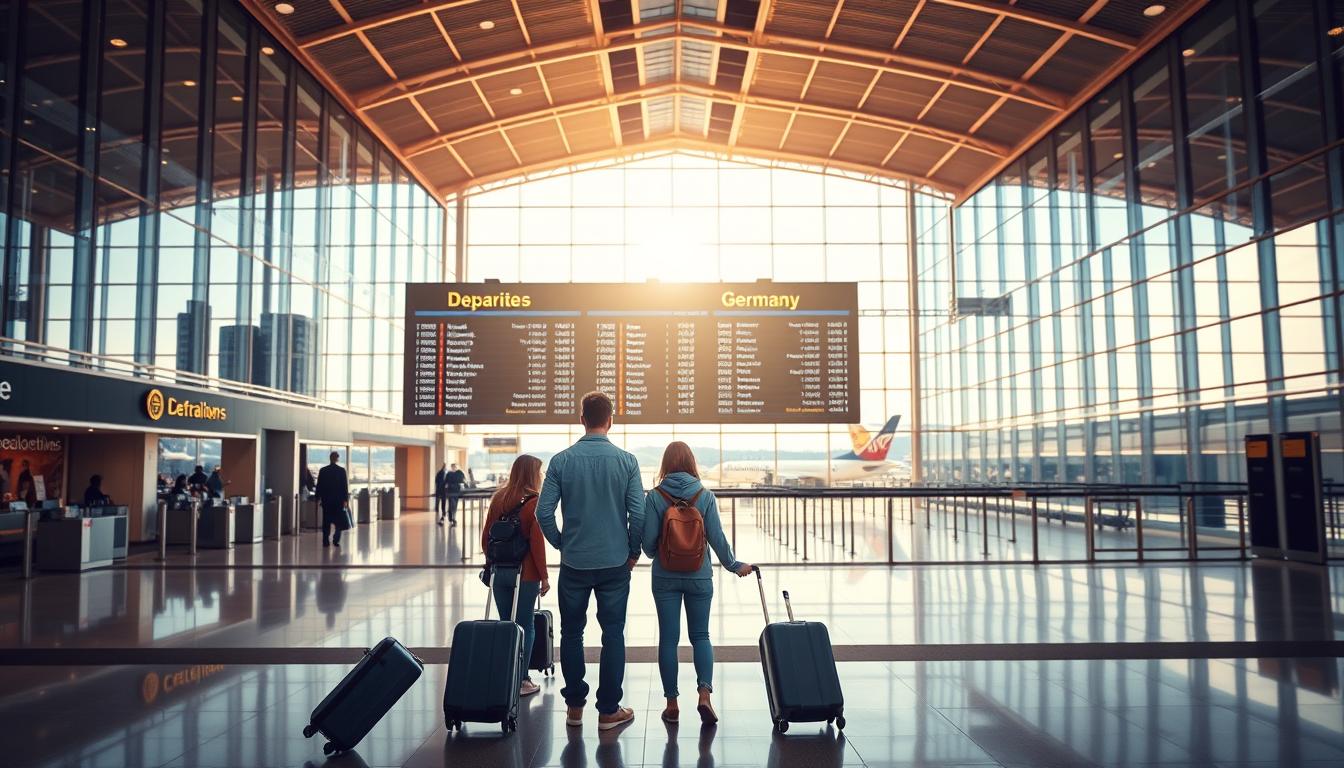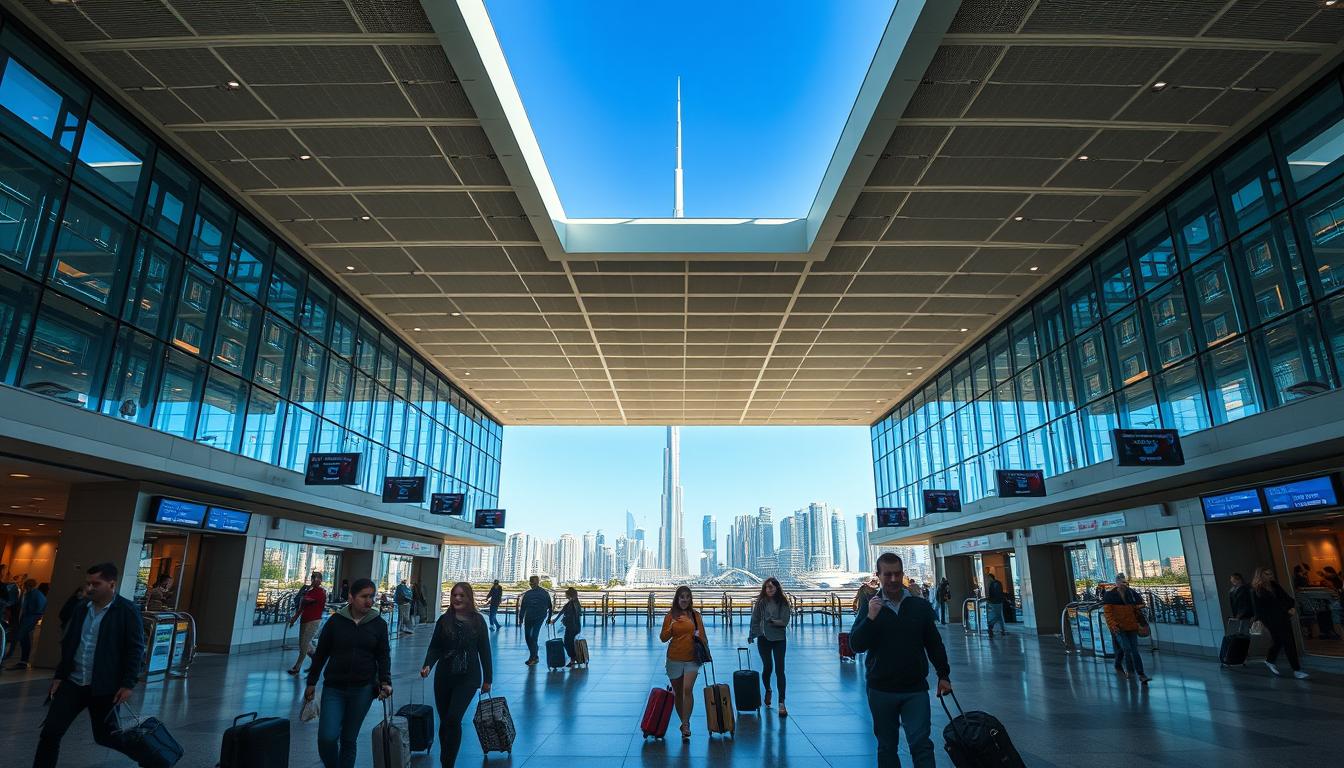Travel Safety Guidelines: Ensuring a Secure Journey Abroad
Traveling abroad can be both exciting and daunting. As more people travel internationally, knowing how to stay safe is key. This article offers valuable insights and practical advice to help you stay safe while traveling.
Anúncios
By learning about international travel safety guidelines, you can feel more confident when exploring new places. This knowledge helps you avoid risks and enjoy your travels more. Being prepared and aware is crucial for a safe and enjoyable journey.
Importance of Travel Safety Guidelines
Traveling to new places can be exciting, but it also comes with risks. Getting the right travel safety advice is key. Knowing about global travel risks helps you prepare for your trip.
Understanding Global Risks
Travelers face many risks, like natural disasters, political issues, and health emergencies. Knowing about these dangers helps you make smart choices. Looking into local crime, health, and weather helps you understand what to expect.
Using resources that talk about these topics can help you stay safe. It prepares you for the unexpected.
Benefits of Travel Safety Practices
Following safety tips can make your trip better. It helps keep you safe, protects your stuff, and makes you feel secure. Simple steps, like planning your route or knowing emergency numbers, can make your trip worry-free.
Preparation Before Traveling
Before you start your journey, spend time getting ready. Learn about your destination, think about your health needs, and get travel insurance. These steps will make your trip better.
Researching Your Destination
Doing your homework is key. Learn about local customs, basic language, and safety tips. Use travel guides, official websites, and forums for great advice.
Health Preparations and Vaccinations
Keeping healthy while traveling is important. Talk to a doctor about shots and meds for your area. Know health risks and carry a basic first-aid kit to avoid problems.
Travel Insurance Considerations
Travel insurance is a must-have. It covers unexpected things like trip cancellations, medical issues, and lost stuff. Choose a policy that fits your needs for worry-free travel.
Packing Essentials for Safety
Packing right is key to a safe trip. What you pack can make a big difference in your safety. Choosing the right items helps you stay safe on your travels.
Choosing the Right Luggage
Look for luggage that’s tough and has locks. It should be light and big enough for your stuff. Bags with pockets help you find things fast.
Using packing cubes keeps things tidy and safe. This makes your trip smoother.
Important Documents to Carry
Don’t forget your important papers. Keep your passport, visas, and plans safe but easy to get to. It’s smart to have copies in different places.
Have your emergency contacts and health info ready. Keeping these documents organized makes your trip safer.
Recommended Safety Gear
Adding safety gear to your pack is a good idea. Carry personal alarms, locks, and first aid kits. A portable charger keeps your devices charged.
These items help you face any unexpected problems. They make your trip safer and more worry-free.
Transportation Safety Tips
Traveling safely means knowing how to stay safe on different ways to get around. It’s important to be aware of your surroundings, especially on public transport. Also, knowing the rules and safety tips for car rentals and ride-sharing services is key.
Using Public Transport Securely
Stay alert when using public transport. Keep an eye on your things and your surroundings. Try to avoid busy times to reduce the risk of theft or accidents.
Plan your route ahead of time and know where to get off. Learning the local transit system can make your trip safer and more comfortable.
Car Rentals and Driving Abroad
Driving in a foreign country requires careful attention to safety. Knowing the local traffic laws can help avoid fines or accidents. Always check the car for safety and function before driving.
Make sure you have enough insurance. Driving in new places can be fun if you know the roads. This makes your trip safer and more enjoyable.
Ride-Sharing Services Best Practices
When using ride-sharing apps like Uber or Lyft, be careful. Always check the driver’s ID and the car details before getting in. Tell a friend or family member where you’re going for extra safety.
Choose safe places to get picked up. Being careful can help avoid risks.
Accommodation Safety Measures
When choosing where to stay, safety should be your top priority. Using hotel safety tips can greatly improve your personal safety on trips. Look for places with strong security, good reviews, and a safe reputation.
Selecting a Safe Place to Stay
Begin by finding accommodations in well-lit, busy areas near attractions. Reading reviews can give you insight into safety. Also, ask for tips from other travelers. Make sure the hotel has security staff and cameras for extra safety.
Securing Your Hotel Room
When you arrive, make sure to lock your room. Use safety chains or deadbolts for extra security. Always keep windows closed and locked. A travel doorstop or security wedge can also help prevent unwanted entry. Keep your valuables in sight or in the hotel safe when you leave.
During Emergency Situations
Being prepared for emergencies is crucial. Learn the evacuation routes and where emergency exits are. Knowing where fire alarms are and emergency numbers is also important. In a crisis, knowing where to find help can be a lifesaver.
Health and Medical Considerations
Travelers need to be ready for health problems that might happen on their trip. Knowing how to find medical help abroad is key to staying safe. Learning about local healthcare options can give you peace of mind and quick help in emergencies.
Accessing Medical Services Abroad
It’s important to look into medical services before you go. Many places tourists visit have private hospitals and clinics for different health needs. Knowing where these places are can be a big help if you need urgent care. Here are some tips:
- Check if the destination has a health facility nearby.
- Understand the process for receiving care, including any language barriers.
- Keep a list of local emergency contacts handy.
Essential Medications to Carry
Carrying essential medications can prevent health problems on your trip. It’s smart to:
- Make a detailed list of medications you need, including prescriptions and over-the-counter drugs.
- Keep medications in their original packaging for easy identification.
- Talk to a healthcare provider about the right medications for your destination.
Having a personal health kit is very useful, especially when you’re in places where you can’t find familiar brands.
Staying Hydrated and Healthy
Drinking enough water is key to staying healthy while traveling. High temperatures, changing climates, and new foods can mess with your usual routine. Here’s how to stay healthy:
- Drink lots of water, especially in hot places.
- Eat balanced meals to get all the nutrients you need.
- Do some light exercise to keep your energy up.
Following these health tips can help prevent illness and keep you feeling good on your trip.
Understanding Local Laws and Customs
Traveling abroad means knowing the local laws and customs. Understanding these can make your trip smoother. Learning about visa rules and what’s not allowed helps avoid legal problems.
Researching Local Laws
Before you go on an international trip, research the laws of your destination. You need to know:
- Visa and entry requirements
- Local laws about alcohol
- Rules on photography
- Traffic laws if you plan to drive
Knowing this can help avoid trouble during your trip.
Cultural Sensitivity and Respect
Being culturally sensitive is key while traveling. Each country has its own social norms and customs. Adapting to these shows respect for the local culture.
Small actions, like greeting in the local language or dressing modestly, can make a big difference. They help build good relationships and make your trip better.
Avoiding Legal Troubles
Travelers who don’t know the local laws might face legal issues. Important steps include:
- Being respectful of local traditions and practices
- Avoiding public displays of affection in conservative areas
- Understanding the consequences of actions, like drug use or theft
Communication and Connectivity
Good communication is key to a safe and fun trip. Knowing how to reach out to loved ones and local help makes traveling easier. Using different methods can really help with communication while traveling.
Staying Connected While Traveling
It’s important to stay in touch when you’re in a new place. You might want to buy a local SIM card for data or find Wi-Fi in cafes. These ways help you communicate quickly, which is crucial in emergencies.
Emergency Contacts to Have
Planning for emergencies is a must for safe travel. Keep a list of local emergency numbers like police and hospitals handy. Also, save your country’s embassy or consulate info for help when needed.
Language Barriers and Solutions
Dealing with language differences can make your trip better. Use translation apps to help talk in a foreign language. Learning basic phrases in the local tongue is also helpful. It lets you connect better with locals and understand their culture.
Personal Safety Strategies
Travelers can stay safe by using effective personal safety tips. Being aware of your surroundings is key. This helps you spot potential dangers and enjoy your trip more.
Knowing which areas to avoid is also important. This makes your travel safer.
Situational Awareness Tips
Being aware of your surroundings is crucial. It helps you notice possible dangers. Here are some tips:
- Watch how people around you behave.
- Don’t use your phone too much in crowded places.
- Listen to your gut if something feels off.
Avoiding Risky Areas
It’s important to know which areas are risky. Look at crime statistics and ask locals. Also, be careful in dark or isolated spots.
- Check crime rates in areas you plan to visit.
- Ask locals about safe places.
- Be cautious in dark or isolated areas.
Travel Buddy System
Traveling with a buddy makes you safer. It’s good to have someone to watch your back. Here’s how to do it right:
- Plan your trip together for shared experiences.
- Set times to check in with each other.
- Talk openly about how safe you feel.
Handling Emergencies Abroad
Traveling can lead to unexpected situations. It’s important to know how to handle them. Being prepared for emergencies can reduce stress while abroad.
What to Do in Case of Theft
Dealing with theft can be overwhelming. But, staying calm and knowing what to do can help. First, report the theft to local authorities right away. This creates a record and can help recover your belongings.
Also, tell your bank to block any stolen cards. If you have travel insurance, report the theft to them too. Keeping a list of important items can speed up the recovery process.
Addressing Medical Emergencies
Having a plan for medical emergencies is key. Know where to find medical services in your area. Keep a list of local emergency contacts, like hospitals and doctors.
Carry a basic first aid kit and any needed medications. This can help with minor issues. Make sure you have health coverage through travel insurance.
Contacting Local Authorities
It’s crucial to contact local authorities quickly in emergencies. Learn the numbers for police and fire departments. Having these numbers ready can save time and keep you safe.
Returning Home Safely
When you get back from a trip, there are important things to do. It’s key to check your health after traveling. This helps keep you healthy and avoids any sickness you might have caught.
Telling others about any safety problems you faced can help make travel safer for everyone. Thinking about your trip can also help you grow and learn more about your experiences.
Post-Travel Health Checks
Checking your health after a trip is very important. Watch for any signs of illness or changes in how you feel. If you’re worried about getting sick, talk to a doctor about getting the right shots or treatments.
Reporting Safety Issues Encountered
If you had any safety problems on your trip, it’s good to report them. This can help make travel safer for others. Sharing your story can also help build a community of travelers who can learn from each other.
Reflecting on Travel Experiences
Thinking about your trip is a great way to grow. You can think about the people and places you met. Figuring out what was good and what wasn’t can make your next trip even better.
Resources for Travelers
Travelers looking to stay safe and prepared have many resources at their disposal. Official government travel advisories are crucial for knowing the risks at different places. They give up-to-date info, helping travelers make smart choices based on safety levels.
There are also travel safety apps that offer real-time updates and help with navigation. These apps are essential for keeping travelers safe while they’re away. They provide tips on everything from finding hospitals to emergency numbers.
Community forums and support groups are also great for sharing safety tips. They let travelers exchange experiences and advice. By using these resources, everyone can stay safer and have a more secure trip.
FAQ
What are some essential travel safety guidelines I should follow?
How can I prepare for health emergencies while traveling?
What steps can I take to ensure my accommodation is safe?
Are there specific transportation safety tips I should be aware of?
How can I stay connected while traveling abroad?
What should I do if I encounter theft while traveling?
What precautions should I take to ensure personal safety while traveling?
Why is travel insurance important?
How can travelers adapt to local customs and avoid misunderstandings?
What resources are available for staying updated on travel safety?
Published in: 28 de February de 2025

Luke Martin
Luke Martin, author of Credwallets.com, is a mathematics graduate with a specialization in financial markets. Known for his love of pets and his passion for sharing knowledge, Luke created the site to provide valuable insights into the complexities of the financial world. His approachable style and dedication to helping others make informed financial decisions make his work accessible to all, whether they're new to finance or seasoned investors.

